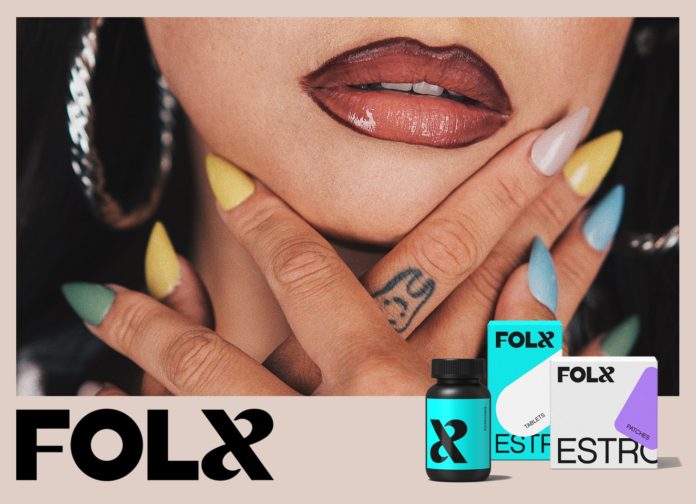
Queer and transgender patients face steep barriers to getting quality health care.
The majority of transgender patients (70%) experience discrimination when they seek out care, leading nearly half (44%) to avoid the emergency department when they need acute care, according to a 2018 study. Close to one-third of trans patients lack regular access to healthcare, a 2017 poll found.
“This community has an absolutely horrible experience with healthcare and has very particular and specific needs,” A.G. Breitenstein, an investor, entrepreneur, and queer health advocate, told Fierce Healthcare.
To help break down these barriers, Breitenstein founded Folx, a telehealth platform designed specifically for the queer and transgender community. The startup works like a One Medical for the LGBTQIA+ (lesbian, gay, bisexual, pansexual, transgender, genderqueer, queer, intersexed, agender, asexual and ally) community, she said.
Folx launched with $4.4 million in seed funding from Define Ventures, Bessemer Venture Partners, and Polaris Partners.
Boston-based Folx combines access to a specialized network of queer and trans clinicians with a tailored focus on clinical offerings that are typically marginalized in traditional health settings. The startup focuses on providing patients gender-affirming hormone therapy, sexual health, and family creation services. Other services include erectile dysfunction treatment, PrEP, and STI testing.
Each offering includes unlimited on-demand clinical support, at-home lab testing, and home-delivered medications. Folx does not accept insurance, but medical plans will be offered at prices similar to or below most co-pay/deductible rates, the company said.
RELATED: Blue Cross MN wants to do better serving transgender patients. Here’s the exec it hired to help
A telehealth platform is well-suited to deliver these healthcare services for this community, said Breitenstein, who identifies as genderqueer and nonbinary.
“It’s not about being diagnosed, so much as it’s about being able to live your life the way you want to and not be judged or harassed in the process,” she said. “This is a community that doesn’t want to go into traditional physical healthcare settings because a lot of them are alienated from it. At the same time, we don’t have that enormous challenge of needing real diagnostic accuracy as we’re really talking about treatment and self-selected treatment.”
Removing barriers and stigma
For many LGBTQIA+ people, who challenge gender and sexual norms, healthcare is a minefield filled with boundaries, shame, discrimination and flat-out violence. A 2015 study (PDF) found that about 42% of female-to-male transgender adults reported verbal harassment, physical assault or denial of equal treatment in a doctor’s office or hospital.
In addition, insurance coverage can be confusing, it’s difficult to get appointments, and talking about topics like sex or gender dysphoria to practitioners who don’t understand are just some of the common hurdles the community faces on a day to day basis, according to Breitenstein.
RELATED: Why transgender telehealth company Plume is getting into employee benefits
The startup aims to democratize and destigmatize healthcare so LGBTQIA+ people feel seen, heard, and most of all, respected, she said.
A 30-year veteran of the healthcare system, Breitenstein was the founder and chief product officer of Humedica, a clinical analytics company that was acquired by Optum in 2013. She then worked at Optum Analytics and helped to spin out the company’s venture arm, Optum Ventures. She also has served on the board at other fast-growing digital health companies including Buoy Health, LetsGetChecked, Vim, and WellSky.
Targeting an untapped market
Folx is tapping into a community that historically has been underserved in the healthcare market. About 4.5% of U.S. adults—11 million people—identify as LGBT; about 1.4 million people identify as transgender. Among the 18-34 population, about 20% identify as LGBTQ, according to a GLAAD survey. Folx is targeting an addressable market that’s nearly 39 million people in the U.S., Breitenstein said.
Folx has built a team of LGBTQIA+ doctors and nurse-practitioners who provide patients with customized medical plans that fit their needs and goals.
RELATED: PRIDE Study uses smartphone apps, digital platform to build cohort for LGBTQ health research
“It’s about being able to speak with and interact with a doctor who understands their lives and speaks to them with respect, uses their pronouns appropriately and has queer confidence as far as understanding the basic biology,” Breitenstein said.
She adds, “As a company dedicated to hiring queer and trans people, the personal experiences they’ve had prior to Folx are deeply embedded in the solutions and thoughtful experience design.”
There are a growing number of digital health companies focused on this space. Queerly is an online marketplace where LGBTQ people can connect with vetted and trained providers, telehealth tools and concierge health. Plume is a digital health service focused exclusively on the transgender community and has expanded into employee benefits.
Breitenstein believes the future of virtual care and digital health will move more toward aligning technology with a particular group of people and their specific health needs.
“If you look at Livongo, they took the diabetic population and said ‘what platform does the diabetic population really need’ and that’s a fundamentally different approach from a Teladoc or Amwell. We think about Folx as the next level by focusing on specific segments and demographics and tailoring the experience to who they are and what they want,” she said.








